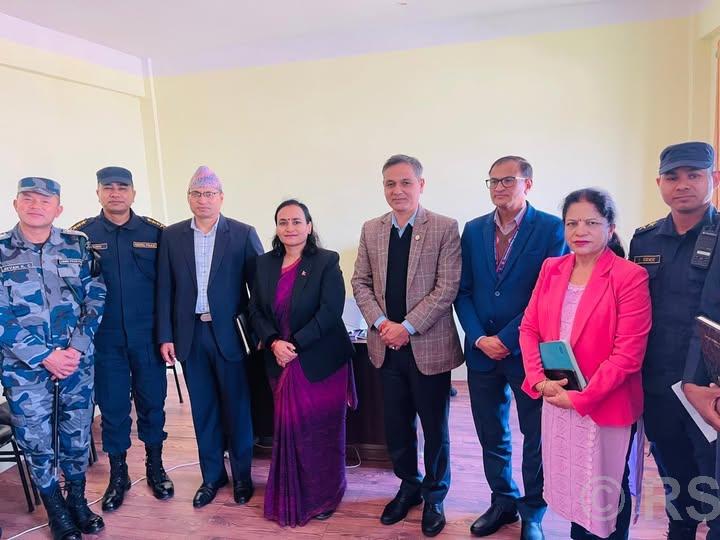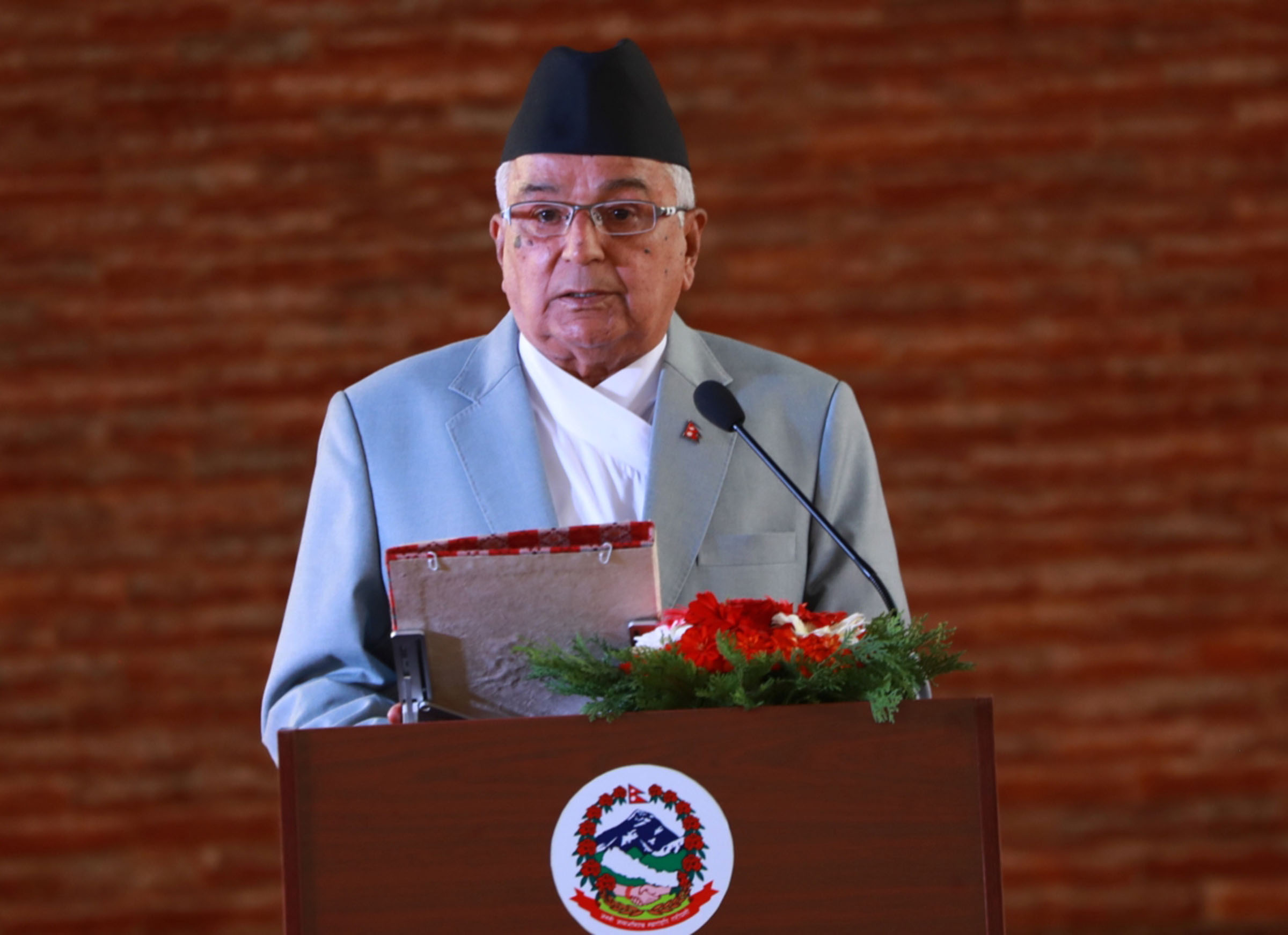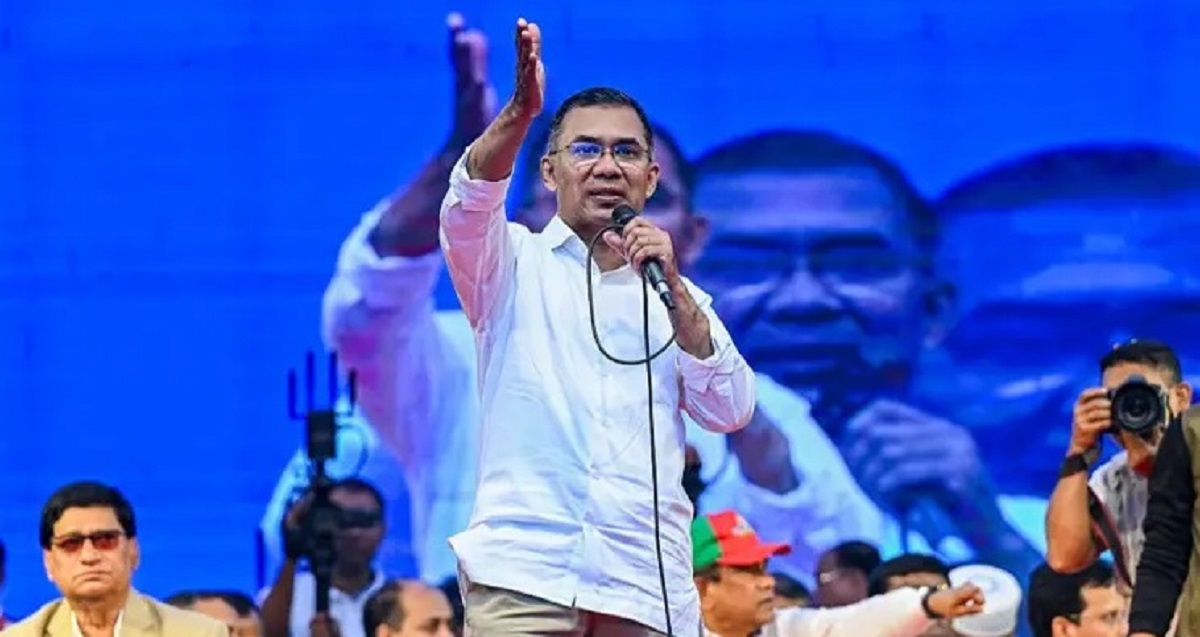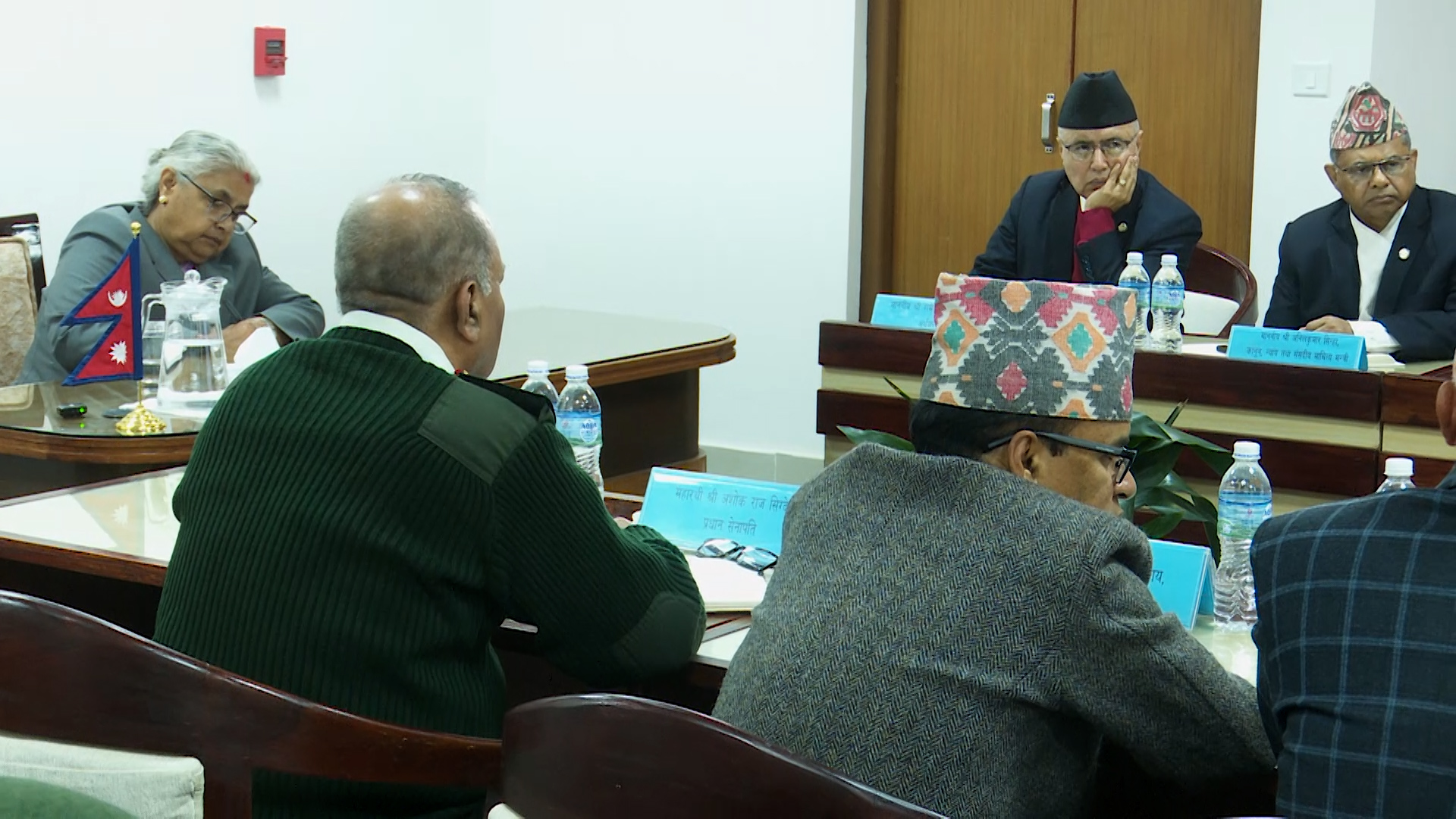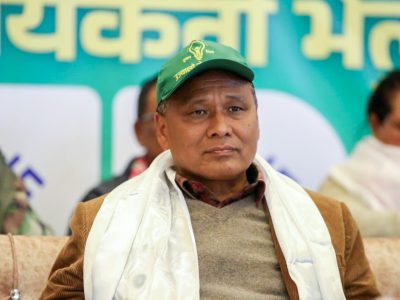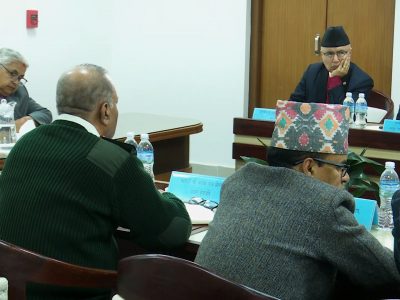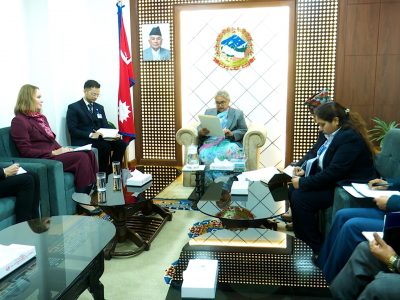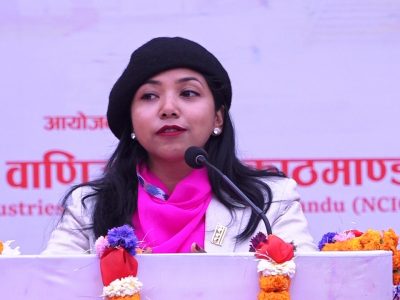Climate activists stage protest in Kathmandu demanding climate-resilient food systems as natural disasters hit agricultural sector
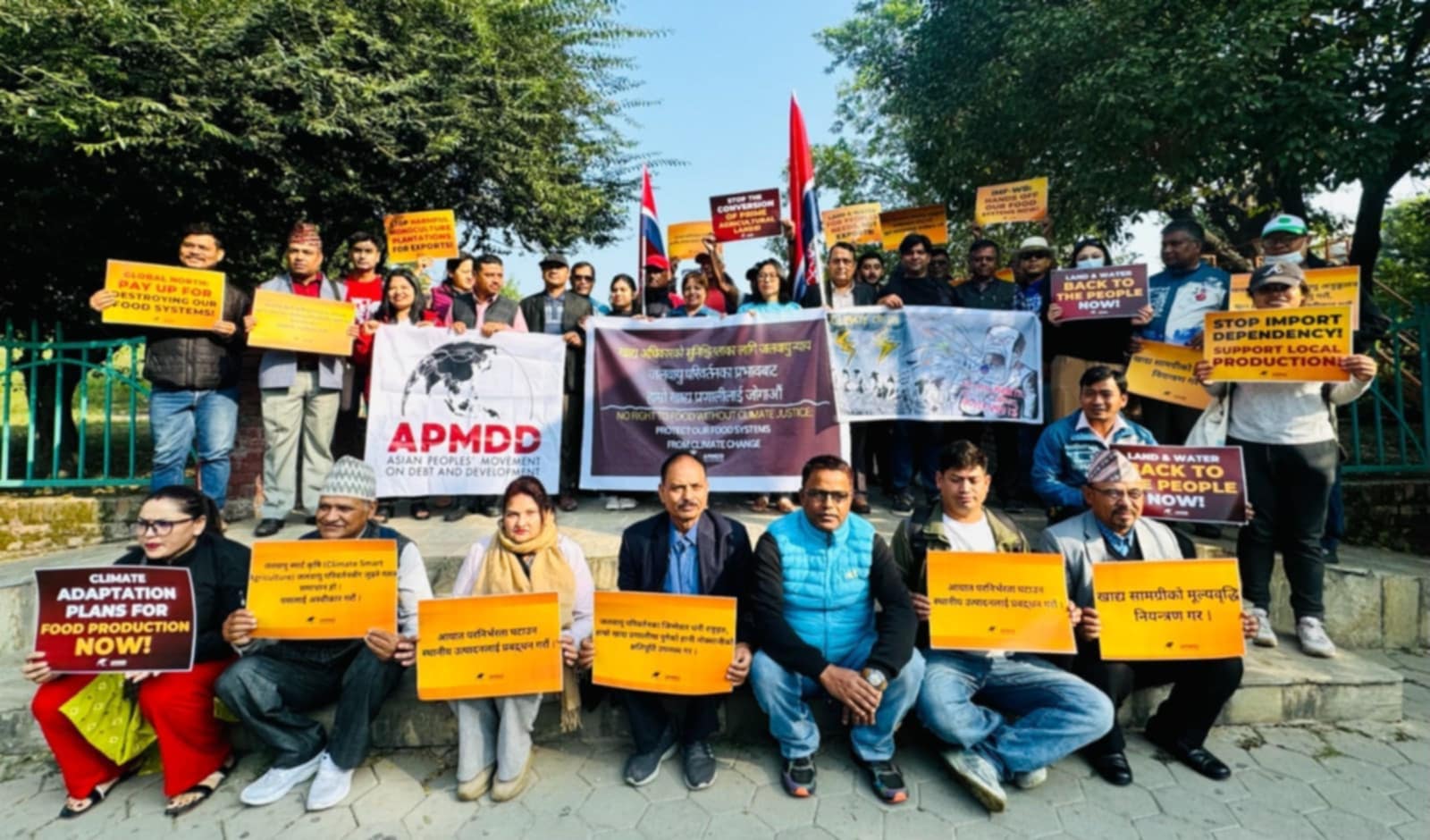
Kathmandu, Oct 21: Climate activists mobilized in Kathmandu, today calling on the government to build sustainable, climate-resilient food systems that ensure adequate and affordable food for all as climate impacts–including record-breaking floods, and landslides–devastate the agricultural sector, increase food insecurity, and cost billions in losses and damages. The protest action is part of wider simultaneous mobilizations in other Asian countries as the whole region has been hit by natural disasters including typhoons, floods and landslides.
The actions in India, Pakistan, Bangladesh, Nepal, Sri Lanka, Indonesia, and the Philippines were led by the Asian Peoples’ Movement on Debt and Development (APMDD) and conducted on the first day of the UN Committee on World Food Security’s annual plenary session, where governments will discuss and endorse policy recommendations on global food security. This year’s plenary session also marks the 20th anniversary of the Right to Food Guidelines, a framework adopted in 2004 by the member states of the UN’s Food and Agriculture Organization (FAO) to ensure access to adequate and sustainable food.
The annual meetings of the World Bank (WB) and International Monetary Fund (IMF) also begin on October 21, prompting campaigners to demand accountability for the WB-IMF’s promotion of neoliberal economic policies, which have weakened food systems across the Global South by enabling the corporate ownership of seed systems and opening up land tenure arrangements to international investors. Demands raised by campaigners included the return of food, land, and water systems to the people, reparations for decades of harmful policies, and the cancellation of illegitimate debts to free up fiscal space for climate action.
In anticipation of COP29 in November, campaigners also demanded the payment of climate finance from Global North governments, as a form of reparations for the destruction of the Global South’s food, land, and water systems. As governments prepare to negotiate a new climate finance goal, campaigners emphasized the need for adequate, public, and non-debt-creating climate finance to flow towards adaptation plans for food and agriculture.
“Every year, smallholder farmers spend $368 billion of their own money to adapt to climate change. It is unacceptable that those least responsible for the climate crisis are forced to pay for it, while the governments, elites, and corporations of rich countries deny their legal and ethical obligation to fund climate adaptation. The people of the Global South are owed trillions, not millions, for the losses and damages that threaten their right to food.”,says Nacpil. The newly established Fund for Responding to Loss and Damage has received less than $700 million in pledges, which amounts to less than 1% of the $447-894 billion needed annually.
“Our current food systems are not sustainable or climate-resilient,” said Bhanu Parajuli of Rural Reconstruction Nepal (RRN), one of the organisers of the action. “Agriculture in Nepal is increasingly vulnerable to the adverse impacts of climate change, which exacerbates environmental degradation and threatens the sustainability of farming practices. Governments must not only implement programs that adapt food systems to the impacts of the climate crisis, they should also ensure sustainability by phasing out carbon-intensive industrial agriculture, and shifting away from the imported chemical fertilizers and monoculture plantations that destroy biodiversity.”
“The end of food insecurity lies in food sovereignty, which prioritizes the rights and needs of those who produce, distribute, and consume food over global markets and multinational corporations. It is time for governments to turn away from the dominant models of industrial agriculture, reject import dependence, and build new national food systems that place staple food production for domestic needs as their highest priority.” said Praman Adhikari, from South Asia Alliance for Poverty Eradication (SAAPE), highlighting the precarious situation in Nepal and the rest of South Asia.
The UN Special Rapporteur on the Right to Food has argued in favor of import and export restrictions for the purpose of developing domestic food production and creating more self-sufficient systems. It is clear that without adequate adaptation and mitigation programs in agriculture, climate impacts on the food sector will only intensify, driving up food insecurity for the world’s most vulnerable people.
Facebook Comment
latest Video
Trending News
- This Week
- This Month




